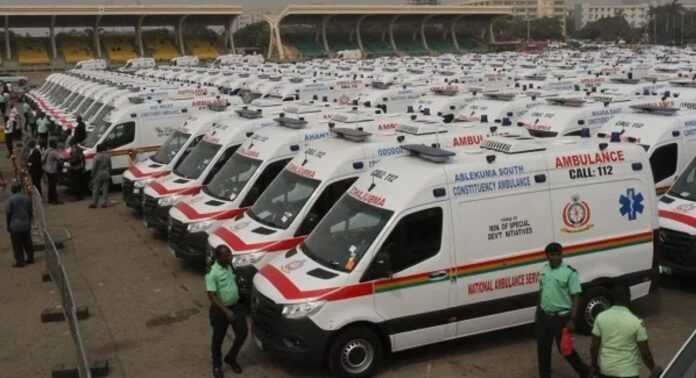Former Energy Minister Herbert Krapa Dismisses Claims of Imminent Load Shedding, Urges New Government to Focus on Power Sector Management
Former Energy Minister Herbert Krapa has rejected claims of an impending load shedding crisis in Ghana, urging the newly elected National Democratic Congress (NDC) government to concentrate on effectively managing the power sector rather than blaming the previous administration.
Krapa’s comments followed remarks by John Jinapor, Co-Chairman of the Transition Team’s Energy and Natural Resources sub-committee, who suggested that Ghana’s fuel stock was dangerously low, potentially leading to power outages.

“Mr. Jinapor is mistaken. Load shedding is not imminent. It occurs due to either technical or emergency power generation issues, or a failure in managing the power sector effectively. Mr. Jinapor seems to be grappling with the latter,” Krapa stated.
In an interview on January 7, 2024, Jinapor had criticized the Akufo-Addo administration for leaving the power sector in crisis, claiming that only five hours of fuel remained for power generation.
Krapa, however, pointed out that before leaving office, the Akufo-Addo government ensured a stable fuel stock to keep essential plants operational. He clarified that light crude oil was stocked for Cenpower, while AKSA continued to receive deliveries of heavy fuel oil for power generation.
He concluded by emphasizing that the responsibility for ensuring a steady electricity supply now rests firmly with the incoming government.
“The responsibility of the new administration is to not only procure more liquid fuel to keep the lights on whenever liquid fuel becomes required to complement gas supply but also to plan competently to avert power supply disruptions. We did it, and they can do it too if they can.”
He called on the NDC government to avoid “needless finger-pointing” and instead focus on practical solutions. “The NDC government should get to work as we did, the reason we kept the lights on for eight years, regardless of the difficult times,” Krapa said.
























































![[FREE FREE MONEY] Predict and Win a Guaranteed GH¢200 From Us EVERY WEEK](https://wordpress.ghanatalksradio.com/wp-content/uploads/2022/02/Predict-and-Win-Final-09-03-2021-218x150.jpg)
![[Predict & Win – 8th/Oct.] WIN A Guaranteed ¢200 From Us This Week](https://wordpress.ghanatalksradio.com/wp-content/uploads/2021/10/maxresdefault-16-218x150.jpg)
![[Predict & Win – 2nd] WIN A Guaranteed ¢200 From Us This Week](https://wordpress.ghanatalksradio.com/wp-content/uploads/2021/09/maxresdefault-50-218x150.jpg)
![[Predict & Win – 25th] WIN A Guaranteed ¢200 From Us This Week](https://wordpress.ghanatalksradio.com/wp-content/uploads/2021/09/maxresdefault-36-218x150.jpg)
![[Predict & Win – 18th] WIN A Guaranteed ¢200 From Us This Week](https://wordpress.ghanatalksradio.com/wp-content/uploads/2021/09/maxresdefault-23-218x150.jpg)







![[National cathedral] See full list of churches that have contributed since 2018](https://wordpress.ghanatalksradio.com/wp-content/uploads/2020/09/Ghana-National-Cathedral-GhanaTalksRadio-100x70.jpg)



